calsfoundation@cals.org
Arkansas Community Foundation (ARCF)
Arkansas Community Foundation (ARCF) is a statewide nonprofit organization dedicated to helping generous individuals, families, civic groups, and businesses financially support charitable causes throughout Arkansas. One of more than 700 community foundations nationwide, ARCF is the only foundation in Arkansas through which individuals and corporations can create endowment funds for the public benefit of the entire state and its communities. With assets of more than $250 million as of 2016, the foundation has provided millions in grants to charitable organizations since its founding.
Arkansas Community Foundation was established in 1976 exclusively for charitable, benevolent, scientific, religious, and educational purposes to benefit the people of Arkansas. The fledgling organization was championed by Mary McLeod, a charitable advisor to Governor Winthrop Rockefeller, who believed that Arkansas was the ideal place to establish a statewide public foundation. McLeod recruited a steering committee of bankers, philanthropists, and business leaders from across the state. The committee met on March 22, 1976, to approve the organization’s bylaws and elect its first officers. Little Rock (Pulaski County) attorney B. Frank Mackey Jr. became president of the interim board, and, shortly thereafter, Louis L. Ramsay Jr. of Pine Bluff (Jefferson County) became the first president of the permanent board. The new organization was supported by an initial $258,000 grant from the Winthrop Rockefeller Foundation.
ARCF invests funds from donors—individuals, families, nonprofit organizations, and businesses—in endowments and uses the income, or in some cases the income and a portion of the principal, for grants that serve charitable causes throughout the state. By spending only the income from these investments, ARCF ensures that these funds will be available to support important needs in Arkansas permanently. In its first year, ARCF made $8,000 in grants to support three major projects: a half-hour music education program for the Arkansas Educational Television Network (now Arkansas PBS), a seminar for political journalists at the Institute of Politics and Government, and an initiative through the Arkansas Arts Center (now the Arkansas Museum of Fine Arts) to restore photos by Heber Springs (Cleburne County) photographer Mike Disfarmer.
Over the next thirty-five years, as more endowments were established through the foundation, ARCF’s grant-making ability grew significantly. In 2016 alone, ARCF made almost $17 million in grants to hundreds of nonprofit organizations across Arkansas; many of these grants were recommended by the donors themselves. For example, a 2008 grant made by members of the Chamberlin family of Little Rock from their endowment at ARCF was used to purchase native trees for a re-naturalization project for the Coleman Creek Greenway at the University of Arkansas at Little Rock (UA Little Rock).
Believing that the best route to statewide change is through local initiatives, foundation leaders began establishing a network of local affiliate offices in the 1980s. These community-based, local branches are supported by local leaders who work at the grassroots level to raise funds, establish endowments, and make grants to build their communities. By 2009, twenty-seven local affiliate offices had been established. By providing local insight into immediate needs of their communities, these local offices help the foundation use resources effectively. For example, in 2008, after identifying healthcare as one of Monroe County’s most pressing concerns, ARCF’s Monroe County Community Foundation affiliate office began making grants to projects promoting healthcare access in the county. One such grant provided start-up costs for a pharmaceutical pantry where Monroe County residents with financial need can purchase prescription drugs at a deep discount.
ARCF’s Bridge Fund, an endowment established by an anonymous donor to help preserve a sense of state pride, supports Arkansas history education. In 2011, the Department of Arkansas Heritage and the Butler Center for Arkansas Studies launched the History Hub, an online resource for Arkansas educators, with funding from the Bridge Fund.
In 2005, ARCF was one of only sixty-one community foundations in the nation initially certified as having organizational and financial practices in accordance with the Council on Foundations’ National Standards for U.S. Community Foundations. Independent audits and filing of tax returns, public disclosure of foundation activities, and careful selection of a diverse statewide board of community leaders ensure public accountability.
Throughout its history, ARCF has benefited from the strong leadership of five directors. David Roosevelt served as the foundation’s founding executive director from 1976 to 1979. In 1979, Norma J. Wisor, a Pennsylvania native who had previously worked for the Chicago Community Trust, became executive director. Upon Wisor’s retirement in 1983, Martha Ann Jones, former president of Arkansas Gifted and Talented Education, took up the post, serving until 1996. From 1996 until 2007, Pat Lile, who had founded the Pine Bluff Area Community Foundation affiliate office, served as president and CEO of the organization. In 2008, Heather Larkin, who had previously served as the foundation’s executive vice president, became director upon Lile’s retirement.
For additional information:
Arkansas Community Foundation. http://www.arcf.org (accessed April 20, 2022).
Caillouet, Linda S. “Foundation Celebrates 20 Years’ Philanthropy.” Arkansas Democrat-Gazette, October 17, 1997, pp. 1B, 5B.
Minton, Mark. “Foundation Gives the Not-So-Rich a Chance to Help.” Arkansas Democrat-Gazette, March 6, 2005, pp. 1A, 13A.
———. “Foundation Hits $100 Million in Charity Assets.” Arkansas Democrat-Gazette, July 19, 2006, p. 12B.
———. “National Philanthropic Chief Praises State Group’s Initiative.” Arkansas Democrat-Gazette, July 21, 2007, pp. 1B, 10B.
Sarah Kinser
Arkansas Community Foundation
 ARCF Headquarters at Union Station
ARCF Headquarters at Union Station 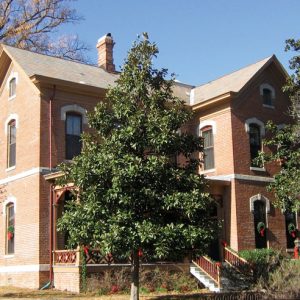 Arkansas Community Foundation Former Headquarters
Arkansas Community Foundation Former Headquarters 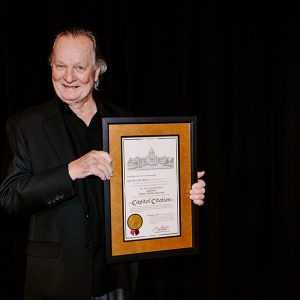 Wayland Holyfield Recognition
Wayland Holyfield Recognition 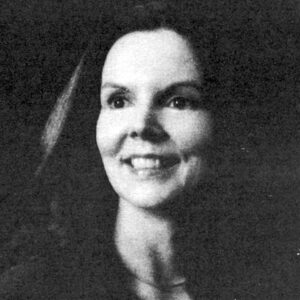 Martha Jones
Martha Jones 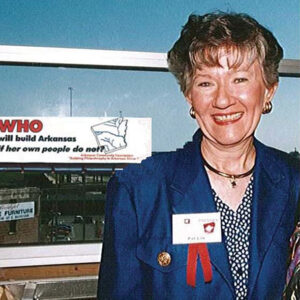 Pat Lile
Pat Lile 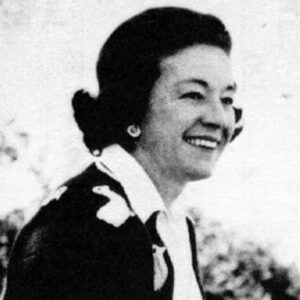 Mary McLeod
Mary McLeod 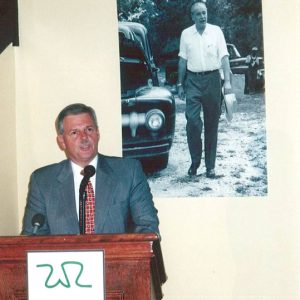 Win Rockefeller
Win Rockefeller 




Comments
No comments on this entry yet.